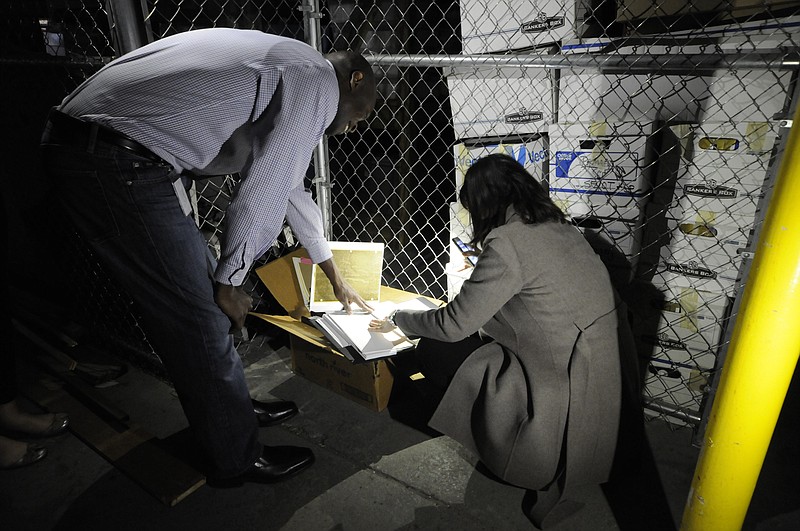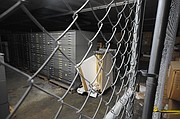In the dim light of a smartphone, the lettering on the side of the 10-odd white storage boxes is faintly legible: "Confidential Medical Information. Medical Personnel Only." A few feet away, in this darkened corner of a storage warehouse on East Main Street, another box is labeled "Unpaid Parking Tickets." There are long cabinets with flat drawers - the label on one reads "TVA Project." Two mattresses sprawl incongruously nearby.
In the darkness, Chattanooga City Attorney Wade Hinton squats down to examine the contents of yet another box, getting a firsthand look at the Herculean task he is undertaking - deciding what to do with decades worth of city government documents, and creating a policy to determine what should be done with new documents - both paper and electronic.
Hinton concedes that no one knows exactly how many boxes or cabinets or closets or attics or basements full of documents exist across all city departments. The general policy for decades has been "keep everything," he told City Council members Tuesday evening as he explained his proposal. One of his first tasks is to get each department to perform a survey to determine what it is storing now.
As city attorney, Hinton's office is often asked to search through the documents when a citizen or reporter files an open records request, asking for all copies of documents related to a certain city project, for example. That is not an easy task when no one is certain what has been kept and where it is stored, he told council members Tuesday.
The very first step, which the council will vote on next week, is to provide $50,000 to hire a consultant, IMERGE Consulting, to provide some guidance. Some of the problem areas:
' What documents are cost-effective to digitize electronically?
' Can some documents be turned over to the public library or a historical society?
' Are there legal requirements that some documents be kept for a certain period of time?
' Where do we keep the documents?
' Who should be responsible for deciding what to keep and what to toss?
Hinton plans to set up a task force to establish guidelines as to what should be kept. City staffer Shannon Harmon, who is working with Hinton, explained that librarians will be members of the committee to decide what documents might have historical value.
Each city department will be asked to assign one person as the staffer primarily responsible for deciding each year what to throw away, Harmon said. Hinton said he is hoping to establish a city-wide policy under which - where possible - all records will be kept for the same period of time, perhaps five years, for example.
Open records specialist Janina Muller explained to the council Tuesday that in certain areas there are industry standards the city needs to follow, particularly when it comes to destroying records.
Councilman Yusuf Hakeem asked Hinton whether he believed his records proposal was critical.
"Absolutely," he responded.
Hakeem followed up by asking about additional staffing.
"Will each department have a custodian in a position with added responsibilities?"
Hinton said he does not foresee needing to hire any new employees, since many of these employees already have been dealing with moving records to storage in their current positions.
Contact staff writer Steve Johnson at sjohnson@timesfreepress.com, 423-757-6673, on Twitter @stevejohnsonTFP, and on Facebook at stevejohn sonTFP.

